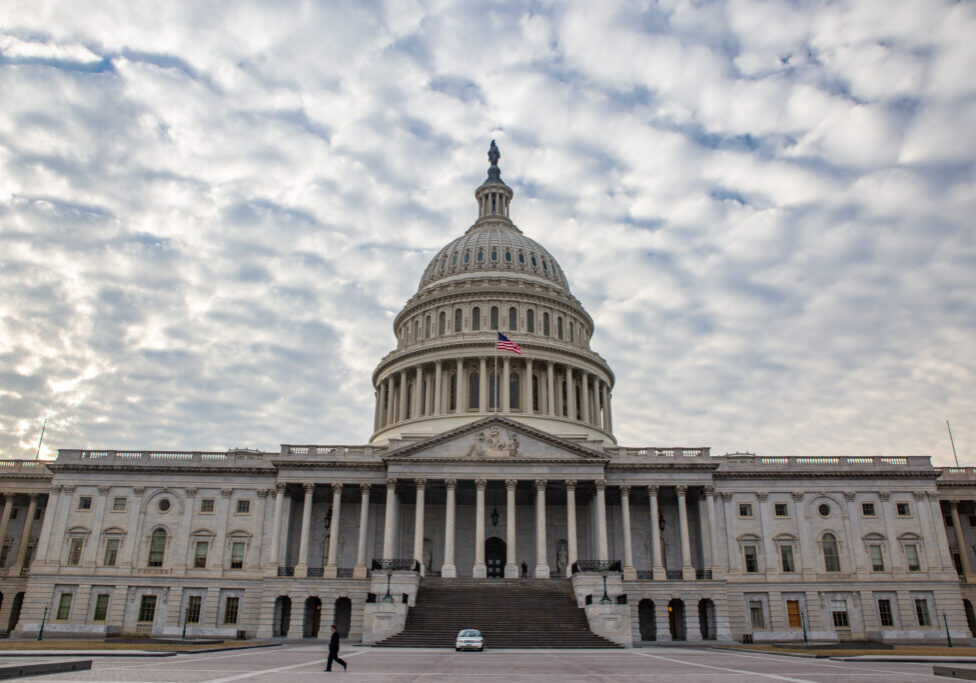A recently passed congressional budget blueprint aims to cut safety-net programs, which benefit people with low-incomes, to partially offset the more than $5 trillion cost of tax cuts for wealthy people and large, profitable corporations. The plan instructs the House Energy and Commerce Committee, which oversees the Medicaid program, to cut $880 billion in spending over the next 10 years. The Times-Picayune | Baton Rouge Advocate’s Mark Ballard reports on the looming fight over Medicaid cuts:
One idea being considered by the House committee is to reverse a Biden administration decision to increase federal matching funds, which would save about $25 billion but cost states more. Other proposals would change the federal medical assistance percentage, or FMAP, the formula that determines how much the federal government contributes to each state’s Medicaid program. If Congress lowered the FMAP percentage for every state that expanded Medicaid rolls under the Affordable Care Act, which includes Louisiana, it could save an estimated $561 billion — but require states to shoulder more of the costs. (…) Cuts to the federal share of Medicaid would have a major impact on Louisiana, where government-subsidized healthcare accounts for about $21 billion each year, of which state’s taxpayers are expected to put up about $3.2 billion.
GOP leaders have stated they can reach their cost-cutting goals by simply targeting fraud – a notion the Congressional Budget Office disagrees with. Ballard provides a reminder of where the vast majority of Medicaid fraud occurs:
The health department’s Office of Inspector General, the U.S. Department of Justice and the Government Accountability Office found very few beneficiaries were gaming the system for monthly payments. Mostly it was people working for clinics, nursing homes, pharmacies, equipment supplies, physicians and the like seeking payments for ambulance runs not taken, prescriptions not filled, medical services not rendered, and the like, according the Health Department’s fraud and abuse control report.
School funding critical to student success
House Bill 185 by Rep. Barbara Freiberg would tie state funding for public schools to student attendance. Louisiana already underfunds its public schools and pays teachers well below the Southern Regional average. That funding gap would only increase if more dollars are withheld from local schools. The Times-Picayune | Baton Rouge Advocate’s Ed Pratt explains why withholding funds for absenteeism does little to address the underlying issues many students face:
There were three youths in the family, but both parents were in jail. The older daughter, a college student and part-time worker, was trying to manage the family. She pushed her siblings to school, but sometimes one of them just found the situation overwhelming and didn’t attend every day. Another family of three lived in a homeless shelter. The mother made sure they got to school. A couple of months ago, she was in the hospital for a few days. The children left the homeless shelter and stayed at the hospital with their mom. Luckily, school was not in session at the time. But, given their love for their mom, they would have spent those days at the hospital if so.
Recreational marijuana pilot program
Rep. Candace Newell’s House Bill 627 would create a three-year pilot program to study the effects of recreational marijuana in Louisiana. Da’Shawn Johnson of Louisiana First reports on the goals of the proposed program and the revenue that could be generated by taxing cannabis:
There are 20 states in the country with legalized recreational marijuana, but Louisiana is not one of them. (…) “I’m talking about statewide, across-the-board education on the product, the use of the product, the dangers of it, and how it can be beneficial,” [Newell] said. Newell said if it passes, this would create an extra source of money that can benefit the state.
Food banks struggle amid federal cuts
The Trump administration recently terminated $1 billion in federal aid for anti-hunger groups. This move has shifted more of the responsibility of combatting food insecurity onto charitable organizations, which often operate on tight margins. The New York Times’ David A. Fahrenthold spoke to Sara Busse, who runs a food bank in Charleston, W.Va., to understand how her efforts are being impacted:
In the past few months, Ms. Busse had already spent $10,000 — a third of her group’s savings — to keep the meals going, replacing the ingredients the government was no longer providing. She said she had began to feel as if she were trapped in some grim reality cooking show, forced to turn a dwindling supply of federal aid into 600 meals a week, for as long she could. “It’s like being on ‘Chopped,’ every week,” Ms. Busse said, as another volunteer began opening cans of vegetable soup. It was 10 a.m. The seniors ate at noon. “We get weird stuff, and we make it into a meal.”
The White House also terminated policies that paid for food banks to buy fresh and minimally processed foods from farmers. The move will both reduce access to healthy foods and hurt local economies:
In Ripley, W. Va., Aaron Simon had vastly expanded his operation to cater to this business: He built a slaughterhouse and meat-cutting facilities for more than a million dollars, borrowing money on the expectation that he could sell 7,000 pounds of ground meat every month to West Virginia food banks, for $50,000 a month in revenue. Now, Mr. Simon said his orders from food banks have shrunk to a fifth of that, as the remaining money in the program is exhausted. He was told that next month’s order would be the last. He has halted his expansion plans, and stopped buying cows from local farmers.
Number of the Day
1,534,594 – Number of Louisianans enrolled in Medicaid as of September 2024. (Source: Pew)
